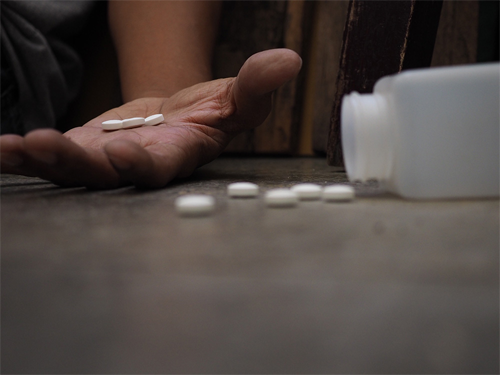We are here to help you! Call us: 888-308-2529
We are here to help you! Call us: 888-308-2529

A recent BBC news article reported that Xanax is being abused by children as young as 11, and many parents are becoming increasingly concerned over prescription drug abuse.
This news report is every parent’s nightmare. You too might be worried your kid is abusing Xanax.
But what to do about it? Is it addictive? What signs and symptoms to look out for? How to confirm your suspicion? And if the suspicion is confirmed, where to seek help?
These are some of the most common questions that bombard parents’ minds. If you are worried your kid might be abusing Xanax, one of the leading prescription medicines abused, then you need to know as much as you can to better help your kid and tackle any developed dependency or addiction.
Before we get into the nitty-gritty of Xanax substance abuse, we need to understand first why it is abused in the first place.
One of the primary reasons behind Xanax abuse is a lack of knowledge and awareness of its harmful effects. Many teens and kids alike think it is a safe gateway to using drugs, and since it is a prescription drug it is safe. This thought couldn’t be any farther from the truth.
You might be wondering at this point, “What creates the need to use Xanax in the first place?”
As an adult, it becomes easy to forget and disregard the stress kids can feel during their high school and college years. Xanax is a popular tranquilizer used to treat anxiety and panic attacks. Pair this with the concept that Xanax is safe, and you have a teen who thinks it is okay to use this drug without a prescription.
As we mentioned above, Xanax is prescribed to treat panic attacks and anxiety. When used with a prescription, it is an excellent drug. However, it is made up of a powerful and addictive class of chemicals called benzodiazepines and works by producing a calming effect on the central nervous system. Xanax is not the only form of this medication; other include Valium, Ativan, and Klonopin.
Xanax is metabolized very quickly in the body. This results in a “high” that leaves the abuser wanting more. Pair this potential path to addiction with alcohol and you have a highly dangerous situation at hand.
The consequences of abusing Xanax or any other benzodiazepine at such an early age can be permanent last a lifetime. Since the human brain doesn’t fully develop until the age of 25, the brain chemistry altered by a Xanax addiction could potentially last for years. It could also hinder the teenager from reaching his full potential later in life, too.
There are many signs that indicate a substance abuse problem.
Has your child been causing trouble at school or work that is uncharacteristic of them? Has your child become secretive and isolated all of a sudden? Is there a sudden lack of hygienic care?
An affirmative to the questions above would indicate a drug problem in general. But how to know if your child is abusing Xanax? You need to look out for the following signs:
Look out for the following signs of a Xanax overdose:
Do you suspect an overdose? Call your nearest substance abuse centre and seek help immediately.
Treatment at a luxury drug rehab is important to ensure that your child recovers under the trained eye of professionals in a safe and comfortable environment. After arriving at a drug rehab center, a consultation with the medical team will determine the substance abuse treatment plan.
Medical detox
Usually, any drug addiction treatment starts off with a medically supervised drug detox at the drug detox center. This is to make sure that the drug has been flushed out of the body. Only then can the actual drug rehab start for your child.
Medications to ease withdrawal symptoms may also be given if deemed necessary by the medical team.
Individual counseling and therapy
In order to work on the addiction, it is imperative to recognize the underlying issues. For that purpose, individual therapy or a one on one session is necessary. Only when the underlying issues that actually led to Xanax abuse in the first place are determined, can your child work towards recovery.
Group counseling and therapy
Group therapy is crucial in letting your child form a support network. Witnessing fellow teens and students struggling with the same issues as themselves can inspire a kinship between the members of the group and make your child realize that he is not alone.
Family therapy
Drug addiction doesn’t just affect the addict himself – it affects those around him too. In order to learn to work as a unit, family therapy sessions are necessary. Your active presence and participation in the recovery process will give your child the confidence he is not alone.
Recreational activities
It is important to remember your child may be fighting addiction, but at the end of the day he is just a child – and fun is crucial to recovery. Luxury rehabs offer classes and programs for recreational activities that can de-stress and improve your child’s mental health immensely. In fact, these recreational activities don’t just help kids; they help adults too.
Want to know more about underage Xanax abuse? Talk to us at Affinity Recovery and we will give your child the best and the most individualized treatment.
Affinity Recovery Is Designed
To Provide Clients With Highly Effective
Addiction Treatment Options.